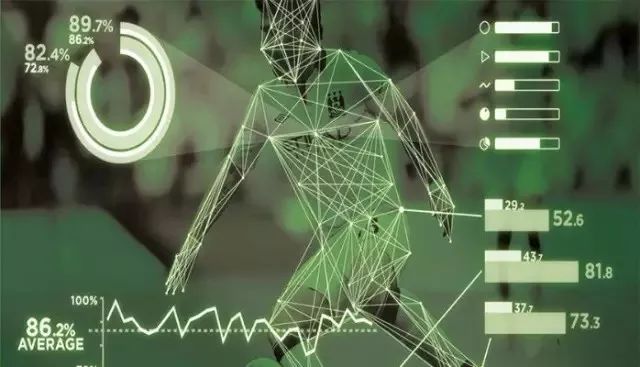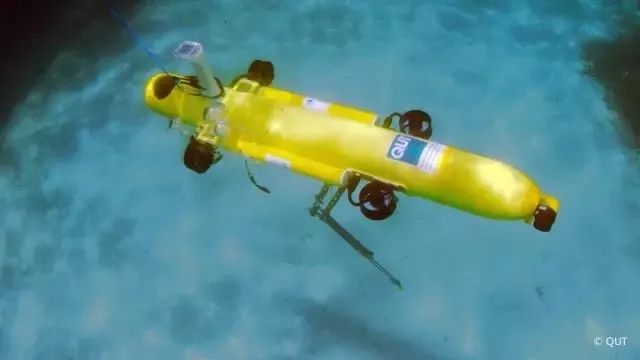There is no doubt that AI has made remarkable technological breakthroughs in various fields in recent years. From assisting doctors' robots in surgery to cognitive services that help people make schedules and tasks, AI has penetrated into every aspect of our lives. The deep learning algorithm is efficient and learning and predicting, which opens up an infinite possibilities for us.
Nowadays, AI has already played a significant role in many fields. In addition to well-known autopilot cars, image processing (Prisma and face recognition, etc.) and chat bots, there are many subdivisions but important areas that are affected by AI. Although these studies have not received widespread media attention, they are the most active areas of research in the AI ​​field. In this article, let's take a closer look at the full application of AI in these segments.
astronomy
Astronomy needs to process massive amounts of data and image information. Once it was analyzed and classified, it relied on humans. As today's writers begin to take advantage of the power of unsupervised learning to replace thousands of human jobs.
Alex, a graduate student from the University of Hartford, is currently working on developing such a system. He said: "The most important thing about our algorithm is not to teach the machine to look for anything, but to teach the machine how to see it."

Today AI helps astronomers optimize blurry and noisy images, and researchers are working to use neural networks to improve the quality of existing data. The application of these algorithms does significantly reduce manpower and improve image quality.
More and more astronomers are beginning to use advanced machine learning techniques to analyze astronomical data, making AI more widely used in astronomy. In this era of great space discovery, perhaps AI can help humans to analyze images and corresponding signals in depth to find new and livable homes for us.
Architecture and planning
Machine learning algorithms are used to model building structures to optimize the energy consumption of buildings. This is very useful for building energy efficient buildings. Machine learning algorithms provide the best architectural solutions for builders by combining historical data with current data.

At present, many buildings in Manhattan have adopted AI-assisted design to build energy-efficient buildings.
On the other hand, AI can also be used for smart grid optimization. Grid4c is a company that provides grid prediction and analysis solutions.
Machine learning algorithms are analyzed by the huge amount of data collected by smart meters. By combining these data with user behavior, a comprehensive set of intelligent power supply solutions can be given. These information and methods can be learned by learning the user's behavior and the use of the device. The rich information will help the power supply department to grasp the fluctuations in power usage at different granularities and use the smart grid for global optimization scheduling.
agriculture
Even in the most traditional areas, you can see AI. Today, AI plays a very important role in promoting productivity in the agricultural sector. Scientists have explored the application of AI in all aspects of agriculture, the most effective of which is the optimization of irrigation systems and the prediction of pests and diseases.

Machine learning algorithms can help farmers optimize and automate irrigation, which not only saves water, but also ensures that the water needed for crop growth is replenished in a timely manner. The AI-driven system can also comprehensively consider the optimal water supply scheme for soil and weather crop types.
Another interesting application comes from an app from a startup, Plantix, which helps farmers uncover images of their crops to predict crop disease. With advanced image recognition technology, it is now possible to accurately predict (90%) more than 60 crop diseases. At the same time, with the help of data, it also provides a series of information from disease monitoring, prevention and treatment, providing a complete solution for farmers to prevent pests and diseases. As users and databases increase, it will be able to handle more and more crop diseases.
Motion analysis
Today's athletes and coaches are very focused on the analysis of athletic performance, including not only their own performance but also the performance of their opponents. The large amount of data collected by people needs to be analyzed and predicted, and this is where machine learning comes into play.

A large amount of data, including size, health, strength, speed, endurance, skill, and daily status, makes machine learning algorithms very powerful. It can help people predict the performance of athletes and their competitors. Accurate predictions are achieved through the analysis of historical data and real-time data that cannot be quickly achieved by human cognitive abilities.
Iceberg is a company that uses AI technology to help the ice hockey team improve their performance. They claim that current real-time technology can perform real-time analysis of 500 athletes at a rate of 0.1 seconds. Perhaps in the future, AI will deeply analyze and predict the performance of athletes and teams in more fields.
entertainment
Last year, a short film called Sunspring attracted great attention because the short film was created by a smart film writer named Benjamin. The scientists used the LSTM RNN to train Benjamin. In addition to scriptwriting, AI plays a role in director, photography, and so on. For example, the film's smart editor Morgen was created by IBM's Watson. With artificial intelligence, it takes 30 days for editing work to be completed within 24 hours.

The application of AI is not limited to the film industry. The art and music fields have also been inspired by AI, presenting a new look. Omusic is an album created entirely by the artificial intelligence composer Musicics 109, an artificial intelligence program developed by the University of Malaga, Spain.
As the computing power and cognitive abilities of machine learning algorithms continue to increase, we are seeing more and more AI in the entertainment industry. Perhaps in the near future, AI can replace most of the average level of artists and filmmakers, but it does not affect the best artists. After all, AI is not enough to create subjective creation out of thin air.
education
Educational data mining is the latest application area of ​​AI. The usual way of education is to provide the same education for all students, but each student's learning ability is different, and it is difficult for teachers to grasp the degree of personalized education for each classmate.

Today's algorithms can help teachers make effective judgments. Through the analysis of learning performance to evaluate students' learning ability and corresponding levels, and help teachers to develop personalized educational programs. Carnegie Learning and Thinkster Math Learning are two companies that use advanced tools for educational analysis.
AI can also help learners to more effectively define the direction of learning, set learning goals, give necessary incentives, teamwork, and so on. At the same time, the AI-driven collaborative learning platform is about to be born. Brainly is such an AI-based learning platform company to discover the greater potential of AI in social learning.
Marine protection
AI-driven robots are more efficient than humans in terms of pollution detection and ocean condition monitoring. These automated robots can collect huge amounts of data at multiple locations and perform analytical predictions. Based on these results, people can take more precise actions in regulating climate change and protecting ecosystems.

At the same time, based on advanced machine learning and computer vision technology, AI can help robots track marine invasive species more accurately and effectively, and remove them. Invasive lionfish have been successfully removed from the Atlantic Ocean and the invading Crown Starfish has been cleared in the Great Barrier Reef. These invading creatures lack natural enemies, greatly destroy the habitat of indigenous creatures, break the ecological balance, and bring about huge environmental disasters (of course, all these mistakes are in humans!). Using AI technology to compensate for biological intrusion errors will reduce the damage to marine ecosystems.
In addition to these applications, there are countless applications waiting for humans to explore. AI helps us to make more effective diagnosis and protect the environment, while intelligent robots in the logistics field are also optimizing the transportation efficiency of society. There are countless industrial applications that can gain new power from AI.
It is believed that the current AI revolution is similar to the power revolution of the 20th century. Although many technicians think that AI will be the source of future instability, I want to give Bill Gates to college students:
"If I want to start looking for the same opportunities that would have a huge impact in the world today, then I think it should be - AI, energy and biological sciences."
AL/CU Universal Terminal Block
Cable Terminal Block,Universal Terminal Block,Waterproof Terminal Block,Low Voltage Terminal Block
ZHEJIANG QIANNA ELECTRIC CO.,LTD , https://www.traner-elec.com